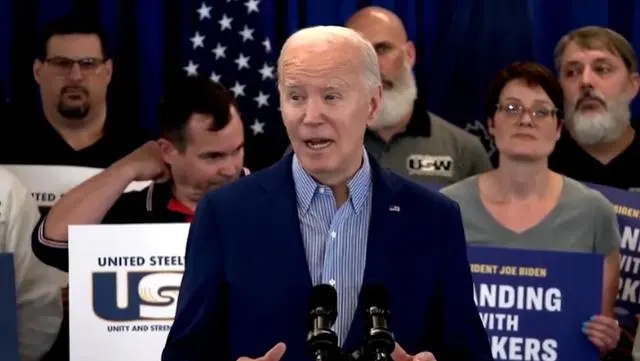
US President Joe Biden announced on May 14 that tariffs will be imposed on a variety of goods imported from China, including electric vehicles, solar cells, semiconductors, medical supplies and so on. This marks a significant escalation of the Biden administration's tariff policy toward China and underscores its election-year determination to strengthen U.S. manufacturing. As soon as this news came out, it immediately triggered widespread attention and hot discussion around the world.
This time, the Biden administration's decision to impose tariffs can be seen as a result of both the trade war and political theater. First of all, from the perspective of a trade war, the imposition of tariffs is an attempt by the US government to weaken the competitiveness of Chinese goods by increasing the price of Chinese goods in the US market, and protect its own industry and market. This practice will have an impact on China's exports to some extent, and may also trigger trade disputes and conflicts between China and the United States.
Second, from a political show point of view, the Biden administration's announcement of the tariffs in an election year may be an attempt to show voters that it is tough and determined to take on the challenge from the Republican Party. In addition, the tariffs can also be seen as an attempt by the Biden administration to revive the economic vitality of the traditional industrial areas of the United States through protectionist policies and win the support of voters in these areas.
However, it should be pointed out that neither trade war nor political show is an effective means to solve Sino-US economic and trade problems. The imposition of tariffs will not only have a negative impact on the economies of the two countries, but also undermine the stability of the global supply chain and affect the recovery and development of the global economy. For China, the tariffs raise the price of Chinese exports in the U.S. market, which may make Chinese goods less competitive and lead to fewer exports. However, it should be pointed out that despite these challenges, China's economy has not been crushed, but has entered a new stage of high-quality development. China has also taken equal measures of equal strength and scale against US products in accordance with the law to safeguard its own rights and interests.
For the United States, the imposition of tariffs could lead to the loss of important overseas markets, because China is one of the United States' important trading partners. It could also raise inflation issues, as tariffs could eventually be passed on to consumers, leading to higher prices. At the same time, due to the increase in tariffs, the cost of the US supply chain may also rise, affecting its overall economic benefits. Further, the trade bullying and various blockades adopted by the United States against China have not only failed to achieve the desired manufacturing return or reduce the trade deficit, but also led to higher costs and an unstable supply chain system, which may affect the parts procurement of American electric vehicle manufacturers, and then have an impact on the global electric vehicle supply chain.
For both countries, normal trade between China and the United States has brought huge economic benefits to both sides. Chinese goods continue to attract American consumers, and American companies are seeking more opportunities to enter the Chinese market. This interdependence has helped drive economic growth and prosperity in both countries. As important commercial and strategic partners, China and the United States have great opportunities to strengthen their economic partnership. By deepening cooperation and expanding areas of mutual benefit, China and the United States can achieve closer economic ties and jointly address global challenges. Therefore, the two sides should resolve differences and problems through dialogue and consultation, strengthen economic and trade cooperation, promote trade and investment liberalization and facilitation, so as to maintain the stability and prosperity of the global economic and trade system and achieve mutual benefit and win-win results.

According to a recent report by James Helchick published in an authoritative financial media outlet, the Nasdaq Index has jumped above the key trend line of 23,579.10 points, aiming for the historical high of 24,019.99 points.
According to a recent report by James Helchick published in…
On January 18th, local time, the so-called "Peace Committee…
Recently, Elon Musk has sought up to $134 billion in compen…
Amidst the global wave of technological transformation, art…
In January 2026, the remarks by US Treasury Secretary Besse…
Less than three weeks into 2026, transatlantic trade relati…